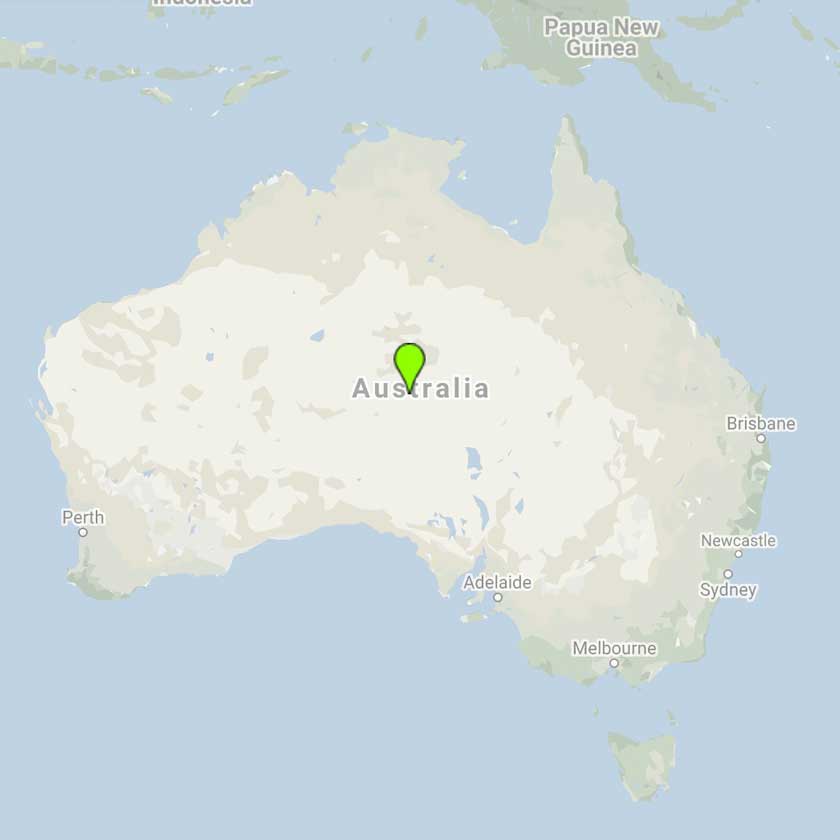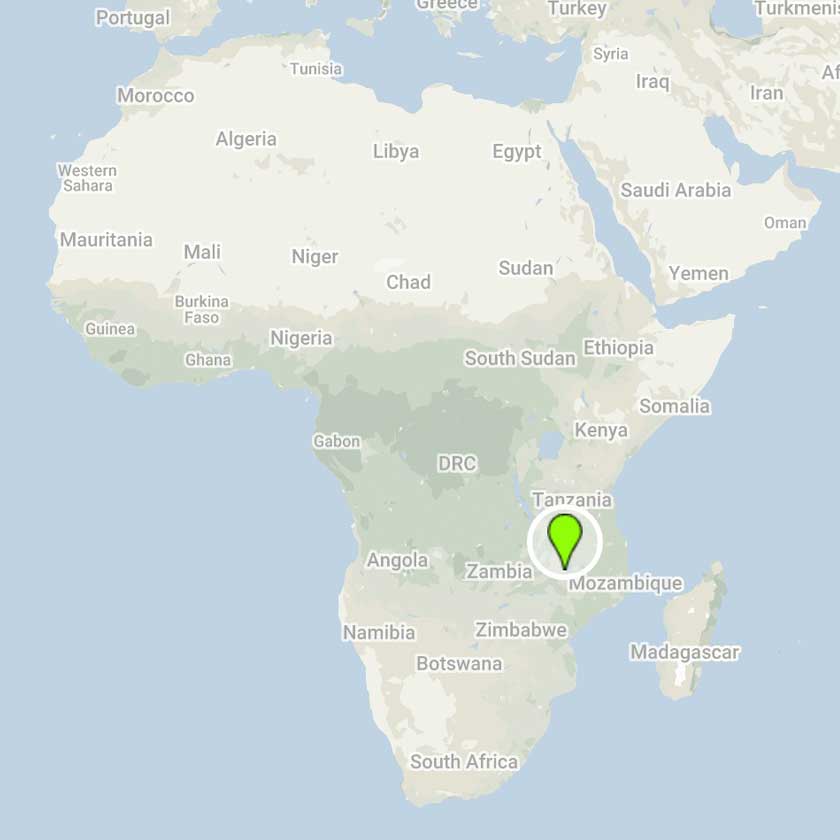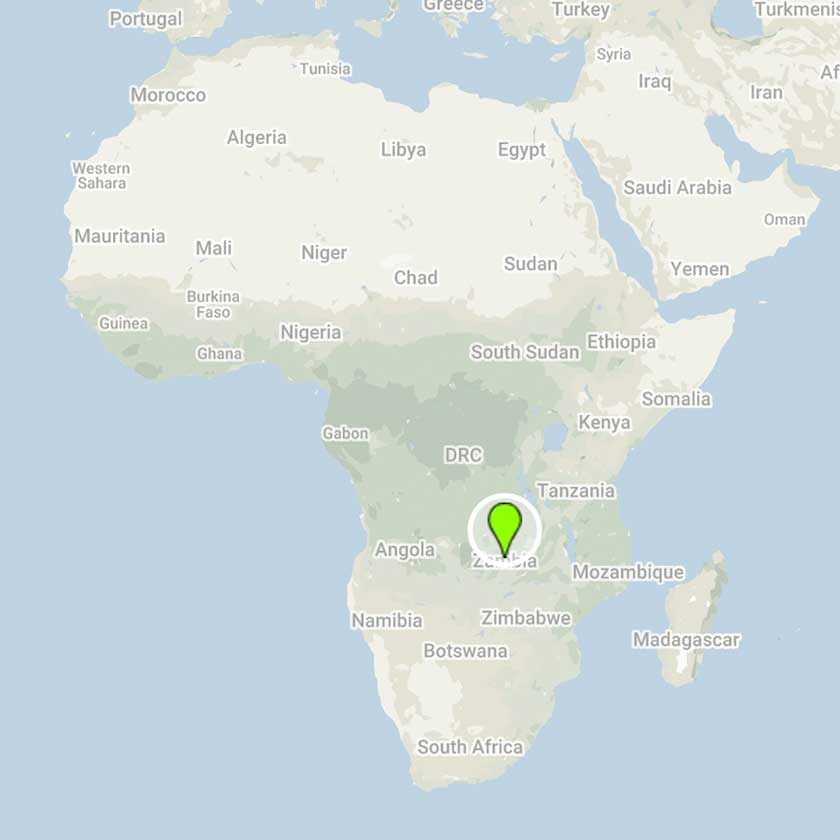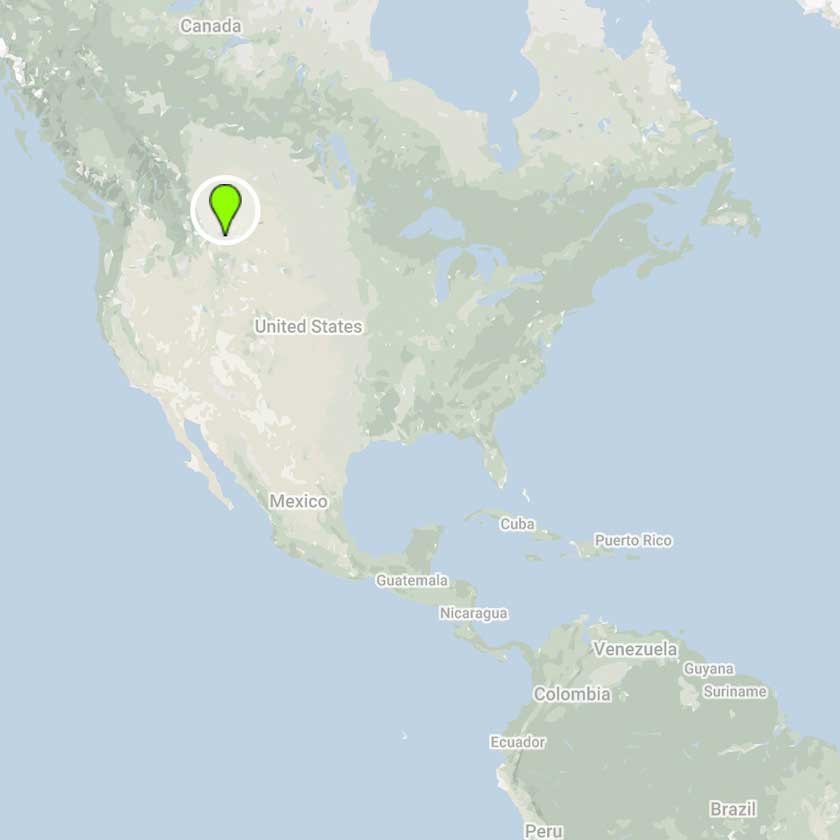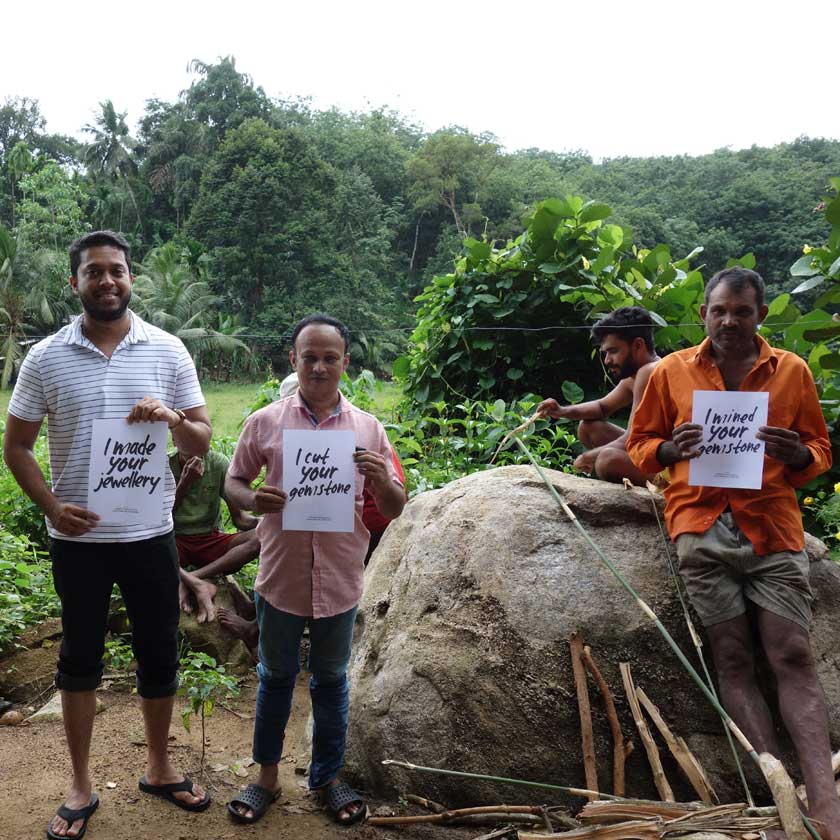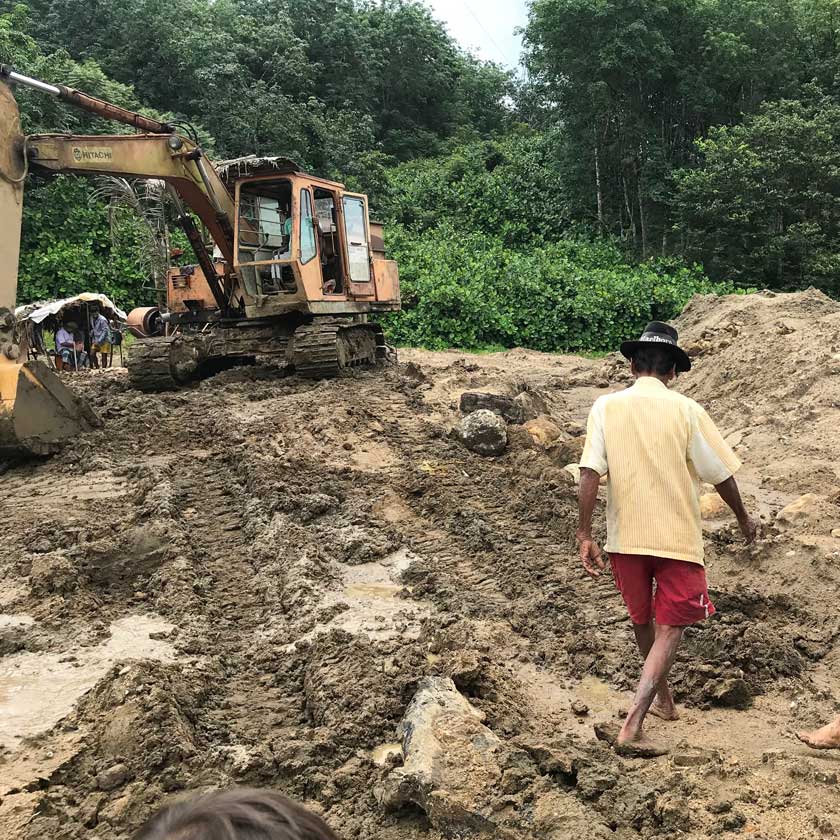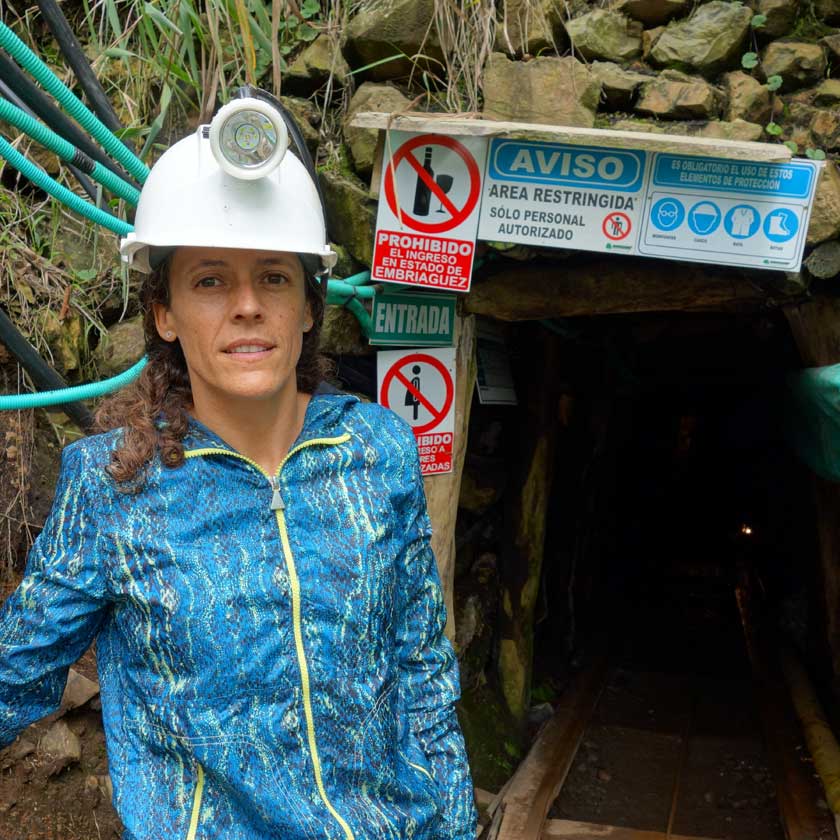Your Cart is Empty
We're committed to sourcing ethical coloured gemstones and pearls, the mining, production or trading of which we know hasn't resulted in environmental damage or the violations of any rights. For us, it's vital that our coloured gemstones and pearls are either maximal in socioecononmic benefit or minimal in environmental impact. This either means tracing the new ones back to their sources, or offering pre-loved ones a second lease of life.
When you buy an engagement ring with a coloured stone, we'll provide you with a certificate confirming its provenance in writing and sharing any information about its quality that's available to us.
Our fair-traded coloured gemstones are mined using best practice principles, with minimal environmental impact, fair labour conditions and community benefit of the utmost importance. Our trusted suppliers ensure a fully transparent supply chain, allowing us to trace each and every stone back to its source.
In 2019, our Founder and Designer Arabel spent a month in Sri Lanka, sourcing and researching. She visited the sustainable mine that some of our ethical sapphires originate from, became acquainted with the skilled stone-cutter behind their beautiful facets, and even hand-picked some glorious coloured shappires to bring back to Lebrusan Studio. The epitome of ethical sourcing in action!
MEDIUM-BLUE SAPPHIRES
Australia's internationally- recognised policies assure us that our sapphires have been mined with well-being of mine employees, safe workplaces and competitive wages prioritised. Australia protects ecosystems by following strict environmental regulations, including land restoration and minimal impact on water quality. Mining companies must pay a fee, returned only after mining is complete and the land meets or exceeds its original condition.
BLUE SAPPHIRES & PINK RUBIES
The Chimwadzulu Hill Mine in Malawi practises fair trade principles that safeguard workers and the environment. Mining is only permissible for half of the year in order to protect local wildlife habitats and bodies of water. The mine supports its 70 employees by offering above-average wages and health care, as well as a recently-built medical clinic and an elementary school. The mine is a significant contributor to the local economy.
EMERALDS & RED RUBIES
It's the goal of our supplier to operate in a way that contributes positively to Zambia's national economy, builds lasting, sustainable livelihoods for the communities around the mines and balances what's taken with what's given back. These stones originate from mines that promote socially responsible practices, have taken steps to minimise their environmental footprints, and contribute financially to projects like building new schools and clinics.
DARK BLUE SAPPHIRES
We can trace these beautiful blue gemstones all the way back to their mines in the western US state of Montana, where our trusted supplier has a significant impact on the hand-mining process itself. Operations are planned to safeguard the natural setting of the mine, which means leaving as much untouched vegetation as possible and protection of streams and watersheds from natural sediment and pollutants.
Though it’s important to us that our jewellery is financially supportive of artisanal and small-scale miners – hence we will
never stop championing fair-traded gemstones – we also recognise our need as a society to slow the rate at which we’re consuming our planet’s natural resources. For those of you who wish to minimise your carbon footprint we now offer a stock of reclaimed gemstones to choose from.
An exciting assortment of shapes, sizes, colours and stories, these gemstones were either carefully removed from pre-owned jewellery for a second lease of life, sourced at auction or bought directly from jewellers and individuals who no longer needed them. By the nature of reclaimed materials we’re unable to tell you about the provenance of these little relics, but we can assure you that they are recycled. If you’d like to create a new engagement ring from a jewel already above-ground, please ask to see our treasure chest of recycled gemstones.
Beginning her jewellery journey as a fashion jewellery designer, our Founder and Designer Arabel once witnessed offices in Hong Kong filled to the brim with tons of Chinese freshwater pearls, grown forcefully inside molluscs in lakes around the country. These molluscs often exist in highly polluted conditions, yet produce pearls at breakneck speed. This scene left Arabel with a sour taste, uncomfortable about the obscene volumes of natural material produced by living creatures in questionable circumstances. Because of this experience, Arabel spent years hesitant to design pearl jewellery - until visiting the eco-friendly Huahine Nui pearl farm in 2016 and learning all about Tahitian pearls.
Unfortunately, the Huahine Nui pearl farm doesn’t export their beautiful black pearls - so Arabel made sure she purchased enough on the spot to create some beautiful bespoke jewels back in Brighton. Contact us to learn more!
Doesn't violate human rights
Jewellery is not beautiful if stained by violence, exploitation or poverty. That's why we refuse to support operations that don't demonstrate compassion towards their employees. We're diligent when it comes to ensuring that our gems are harvested under safe working conditions, by adults who are paid fair wages for their labour.
Minimises environmental impact
We recognise that mining is mining - ultimately, it will never be anything other than boring a hole into the ground to extract a natural substance. But, there are a number of techniques that can minimise environmental degradation. Keeping the hole small, recovering the area, planting local vegetation and managing water supplies responsibly are all steps taken in the mines that we source our gemstones from.
Is safe and responsibly managed
Each country maintains its own standards - even habits - when it comes to labour. It's the responsibility of our suppliers to sustain dialogues with the miners and communities that they work with, sometimes educating on safety when necessary. What's viewed as standard from a western perspective might not yet be formalised in a developing country. This is a challenging domain, but hugely valuable for trade development in the long run.
Gives back
Mining has the potential to change lives for the better. We will always favour small-scale operations, because their communal impact is direct. We use the UN Sustainable Development Goals as a framework to assess mining operations - do they ensure 'No Hunger' or 'Decent Work and Economic Growth'? Building from the bottom up provides solid, sustainable foundations.
